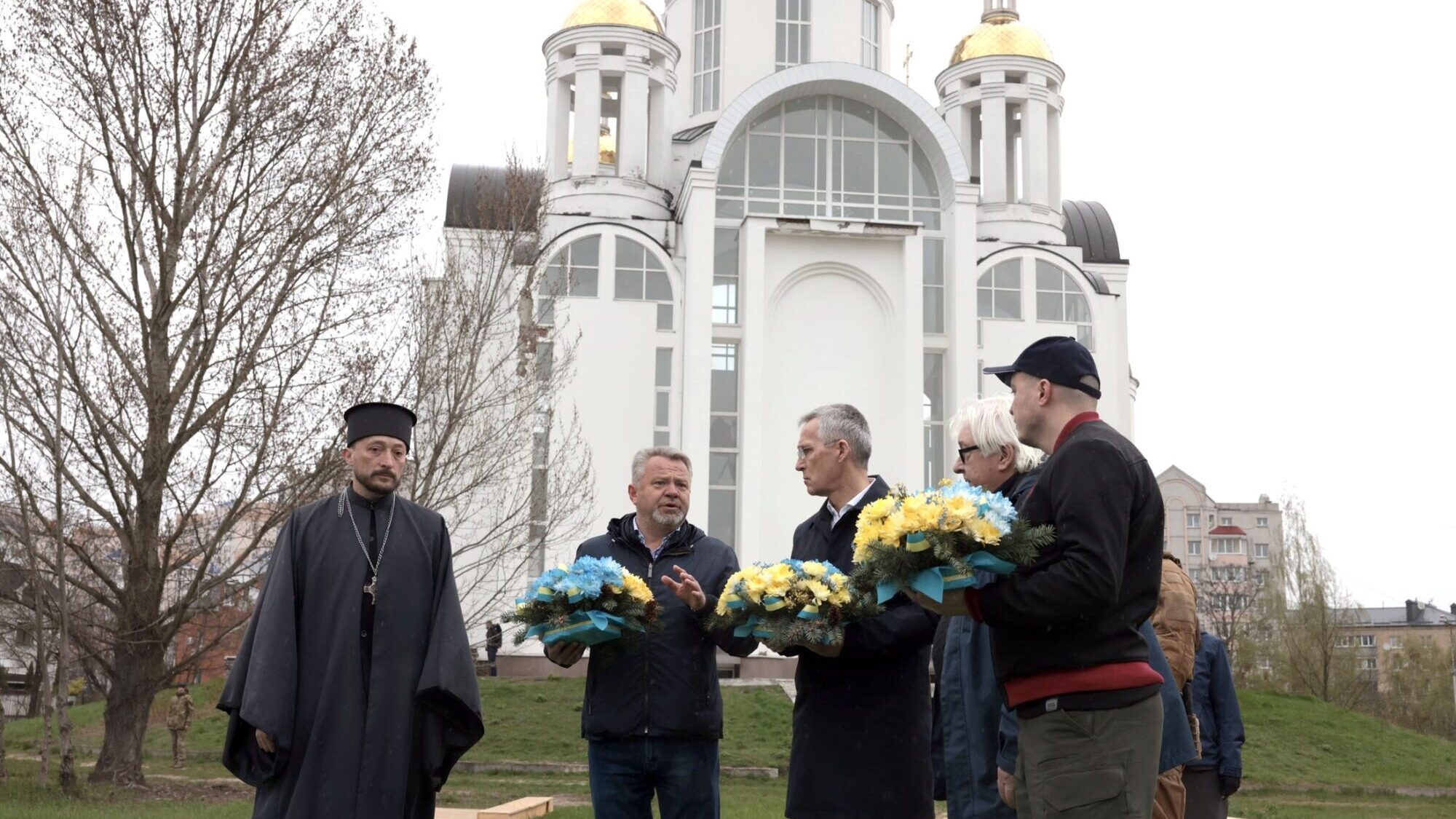NATO membership for Ukraine will be on the agenda of the military alliance’s July summit in Vilnius, pledged NATO chief Jens Stoltenberg while visiting the Ukrainian capital of Kyiv on Thursday, April 20th.
“Ukraine’s rightful place is in the Euro-Atlantic family. Ukraine’s rightful place is in NATO. And over time, our support will help to make this possible,” Stoltenberg pronounced in a press conference with Ukrainian President Volodymyr Zelensky by his side.
Stoltenberg’s first Ukraine visit since the advent of the Russo-Ukrainian war is unusual in that it signals a growing willingness within NATO to go beyond mere patronage and eventually include Ukraine in the military alliance. Ukraine applied in September last year for its accession to NATO to be fast-tracked.
Fearing a Russian (over)reaction, which could drag NATO into the Russo-Ukrainian conflict, Stoltenberg had earlier made sure not to visit the country.
An honour to be back in Kyiv & meet with President @ZelenskyyUa. #Ukraine's rightful place is in #NATO, and over time our support will help to make this possible. We stand by you today & for the long haul. pic.twitter.com/0vlKZNVY0F
— Jens Stoltenberg (@jensstoltenberg) April 20, 2023
Ukraine’s accession will be discussed at the next summit in July in Vilnius, to which Zelensky has been invited. To prepare the ground for that discussion, on Friday, April 21st, Stoltenberg will be attending a Ukraine Defense Contact Group meeting at Ramstein Air Base, Germany.
Yet, for now, NATO’s priority remains Ukraine’s “military victory over Russia,” the NATO Secretary General added.
To achieve that outcome, the Ukrainian president remarked, Stoltenberg would however first need to “help overcome the restraint of some of our partners in the supply of long-range weapons, modern aviation, artillery, armored vehicles.”
In Zelensky’s view, “slowing down the necessary decisions” equaled time being lost “for the world” and Ukraine’s soldiers, “who have not yet received the necessary defense tools.” For its planned spring counteroffensive, Ukraine, in danger of depleting its resources of trained men and equipment, has been demanding more military aid from its backers.
Ukraine’s Foreign Minister, Dmytro Kuleba, highlighted Ukraine’s need in a tweet on Thursday. He criticized the EU’s “inability” to implement its “own decision on the joint procurement of ammunition for Ukraine,” which he deemed “frustrating.”
The inability of the EU to implement its own decision on the joint procurement of ammunition for Ukraine is frustrating. This is a test of whether the EU has strategic autonomy in making new crucial security decisions. For Ukraine, the cost of inaction is measured in human lives.
— Dmytro Kuleba (@DmytroKuleba) April 20, 2023
Stoltenberg expects more “specific assistance” to Ukraine to be announced soon, which would “be added to the assistance that is already being provided.” According to Stoltenberg, NATO members had collectively provided “more than €155 billion in support since February 2022, including €65 billion in the form of military assistance.”
During Stoltenberg’s visit, the Netherlands and Denmark announced that they would add to that support, providing 14 Leopard 2-A4 battle tanks.
While the two Nordic countries would still need to purchase tanks from Germany first, after inspection, they could be delivered to Ukraine immediately, said Dutch Defense Minister Kajsa Ollongren. That delivery would, however, need to wait until next year.
All together, the tanks cost about €165 million. The Netherlands and Denmark will split the cost evenly between them. It is not the first delivery the Netherlands and Denmark have made. In February of this year, the countries bought about one hundred Leopard tanks for Ukraine.
The Kremlin was less than enthusiastic to hear of NATO’s plans for Ukraine.
Kremlin spokesman Dmitry Peskov said prevention of Ukraine’s accession to NATO was “one of the special military operation’s goals,” since that would pose a “serious, significant threat for our country’s security.”
On the subject of NATO Secretary General Jens Stoltenberg’s visit to Kyiv and its meaning, Peskov curtly noted that the Kremlin had “no assessments of perspectives.”






